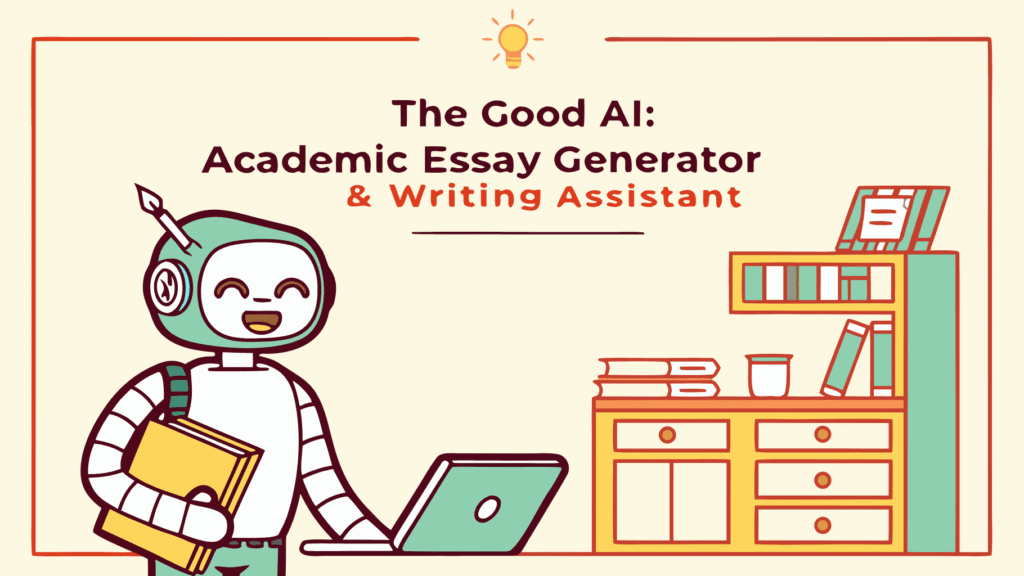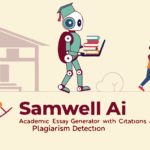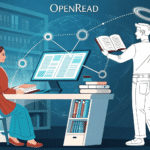
Students and academics face mounting pressure to produce high-quality written work whilst juggling multiple assignments, research projects, and tight deadlines. Enter The Good AI, an academic essay generator and writing assistant that promises to streamline the writing process without compromising academic integrity.
This comprehensive review examines The Good AI’s features, capabilities, and limitations to help you determine whether this tool deserves a place in your academic toolkit. We’ll explore how it performs across different essay types, its approach to maintaining originality, and whether it truly delivers on its promise to enhance rather than replace genuine academic writing.
With artificial intelligence reshaping how we approach academic tasks, understanding the strengths and weaknesses of tools like The Good AI becomes crucial for making informed decisions about your educational journey.
What Is The Good AI?
The Good AI positions itself as an ethical alternative to traditional essay generators, focusing on assisting students rather than completing their work for them. Unlike tools that produce finished essays with minimal input, The Good AI emphasises collaboration between human creativity and artificial intelligence.
The platform offers several core features designed to support different stages of the writing process. These include essay structure generation, research assistance, citation formatting, and style refinement tools. The company markets itself specifically to students, researchers, and academic professionals who need reliable writing support.
What sets The Good AI apart from competitors is its stated commitment to academic integrity. The platform includes built-in plagiarism detection and encourages users to treat generated content as a starting point rather than a final product. This approach aims to address growing concerns about AI-generated academic work whilst still providing valuable assistance.
Key Features and Capabilities
Essay Structure Generation
The Good AI excels at creating logical essay frameworks. Users input their topic, academic level, and basic requirements, and the system generates a structured outline complete with thesis statements, main arguments, and supporting points.
The tool performs particularly well with standard academic formats like argumentative essays, research papers, and literature reviews. It understands the conventions of academic writing, including proper introduction and conclusion structures, transition sentences, and paragraph organisation.
However, the quality varies significantly depending on the complexity and specificity of your topic. Whilst the system handles broad subjects competently, highly specialised or niche topics may result in generic outlines that require substantial customisation.
Research and Citation Support
One of The Good AI’s strongest features is its research assistance capabilities. The platform can suggest relevant sources, generate preliminary bibliographies, and format citations according to various academic styles including APA, MLA, and Harvard referencing.
The citation generator proves remarkably accurate for standard source types like books, journal articles, and websites. It also handles more complex sources such as government documents, conference proceedings, and multimedia materials with reasonable precision.
The research suggestions, whilst helpful for initial exploration, tend to favour readily available online sources over more specialised academic databases. Students working on advanced projects may find the suggested sources too basic for their needs.
Style and Grammar Enhancement
The Good AI incorporates sophisticated language processing to improve writing clarity, coherence, and academic tone. It can identify passive voice overuse, suggest stronger vocabulary choices, and flag informal language inappropriate for academic contexts.
The grammar checking functionality rivals established tools like Grammarly, catching common errors whilst also identifying more subtle issues like faulty parallelism and unclear pronoun references. The system also provides explanations for its suggestions, helping users learn from their mistakes.
The style recommendations generally improve text quality, though they occasionally suggest changes that alter the author’s intended meaning or voice. Users should review all suggestions carefully rather than accepting them automatically.
User Experience and Interface
The Good AI features a clean, intuitive interface that doesn’t overwhelm users with excessive options or complicated menus. The dashboard clearly displays available tools, recent projects, and progress tracking features.
Navigation feels natural, with logical workflows that guide users through the writing process step by step. The platform loads quickly and responds promptly to user inputs, making it suitable for students working under time pressure.
The mobile experience, however, leaves room for improvement. Whilst the platform functions on smartphones and tablets, the interface doesn’t adapt seamlessly to smaller screens. Students who prefer mobile writing may find the experience frustrating compared to desktop usage.
Pricing and Value Proposition
The Good AI offers a tiered pricing structure designed to accommodate different user needs and budgets. The free tier provides basic essay structuring and limited citation support, suitable for occasional users or those wanting to test the platform.
The premium subscription unlocks advanced features including unlimited essay generation, comprehensive research assistance, and priority customer support. The pricing sits in the middle range compared to similar tools, neither the cheapest nor most expensive option available.
Value assessment depends heavily on usage frequency and specific needs. Students writing multiple assignments per semester may find the premium subscription worthwhile, whilst those needing occasional assistance might prefer the free tier or pay-per-use alternatives.
Academic Integrity Considerations
The Good AI attempts to address academic integrity concerns through several built-in safeguards. The platform includes plagiarism detection capabilities and encourages users to view generated content as inspiration rather than final submissions.
The system also provides guidance on proper attribution when using AI assistance and offers resources about academic honesty policies. These features demonstrate the company’s awareness of ethical concerns surrounding AI in education.
However, questions remain about how institutions and instructors view AI-assisted work, regardless of the tool’s ethical positioning. Students should familiarise themselves with their institution’s policies on AI assistance before incorporating The Good AI into their workflow.
Limitations and Areas for Improvement
Despite its strengths, The Good AI exhibits several notable limitations. The system struggles with highly technical or specialised subjects, often producing generic content that requires significant revision.
The research capabilities, whilst useful for preliminary investigation, don’t match the depth and accuracy of dedicated academic databases. Students conducting advanced research may find the suggested sources insufficient for their needs.
The platform also shows inconsistency in handling different citation styles. Whilst APA and MLA formatting generally works well, less common styles may contain errors that require manual correction.
Comparison with Alternatives
The Good AI competes with established players like Grammarly, Turnitin’s feedback tools, and various essay generators. Its unique positioning as an “ethical” AI assistant distinguishes it from pure generators whilst offering more comprehensive features than basic grammar checkers.
Compared to Grammarly, The Good AI provides superior essay structuring capabilities but falls short in advanced grammar detection and style refinement. Against dedicated essay generators, it offers better academic integrity features but may require more user input and revision.
The platform’s research assistance capabilities exceed most direct competitors, though they can’t replace proper academic databases and librarian-assisted research for serious academic work.
Is The Good AI Worth Using?
The Good AI serves as a valuable tool for students seeking writing assistance whilst maintaining academic integrity. Its combination of structural support, research guidance, and style improvement creates a comprehensive platform that addresses multiple aspects of academic writing.
The tool works particularly well for undergraduate students and those new to academic writing who need guidance on proper essay structure and citation formatting. More advanced users may find the assistance helpful for initial brainstorming and organisation, though they’ll likely need additional resources for specialised research.
Students considering The Good AI should evaluate their specific needs, institutional policies, and budget constraints. The platform offers genuine value for appropriate use cases, but it shouldn’t replace fundamental writing skills development or original thinking.
Making the Most of AI Writing Assistance
For students ready to explore AI-powered writing support, The Good AI represents a thoughtful entry point into this evolving landscape. Its emphasis on collaboration rather than replacement aligns with educational goals whilst providing practical assistance for common academic challenges.
Success with The Good AI—or any AI writing tool—requires understanding its role as a supplement to, not substitute for, critical thinking and original analysis. Use it to overcome writer’s block, improve organisation, and refine expression, but ensure the ideas and arguments remain authentically yours.
Remember that mastering academic writing takes practice and patience. Tools like The Good AI can accelerate your progress, but they work best when combined with dedication to developing your own analytical and communication skills.

I am Ray Jones Digital
My current occupations: a Digital Marketer, Local SEO expert, Link Builder, and WordPress SEO specialist. Shopify SEO, Ecommerce Store Management, and HTML & WordPress Developer I have been practicing the above mentioned services for more than 10 years now As an SEO expert working with your ongoing projects.



